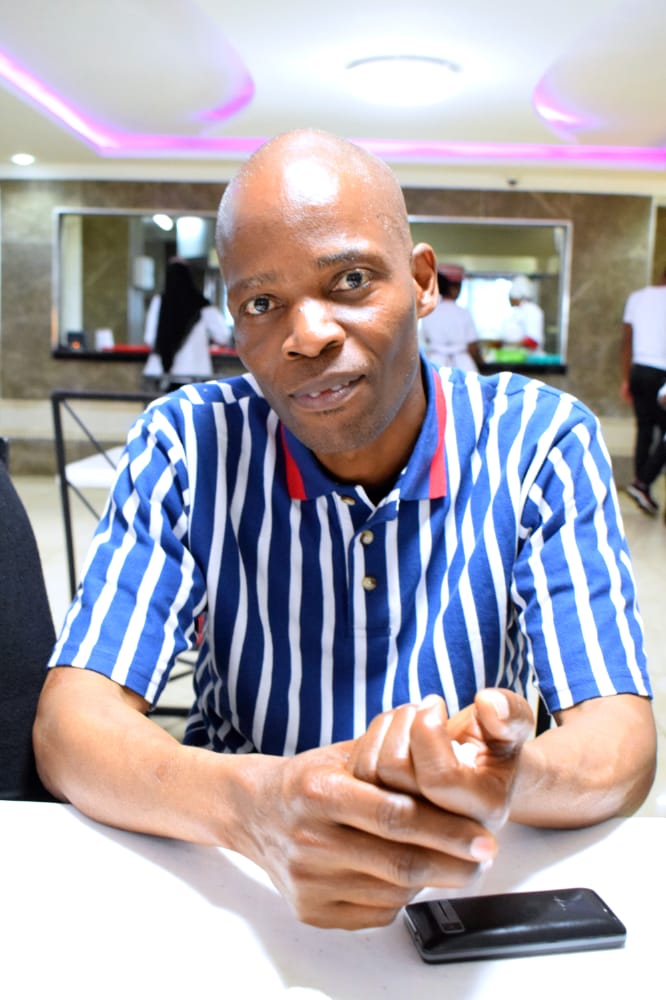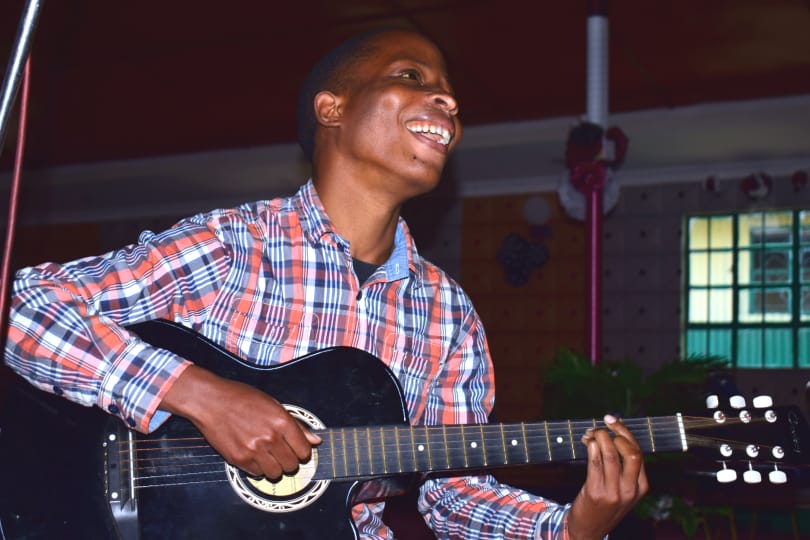My parents traveled a far distance to get a diagnosis for my swollen hands and the pain in my joints. We didn’t have access to a test to determine my genetic status. When they found out I had sickle cell disease at 6 months, they were devastated because they were told no cure was available in Kenya.
The Kenyan government and healthcare system is not built for people living with sickle cell disease. There isn’t insurance to support the care you need, so we have to pay out-of-pocket for expenses associated with sickle cell. There aren’t many specialists or education and awareness around sickle cell, so many of us are reliant on advocacy groups.
When I’m in severe pain, I have to bargain with the doctor to receive strong pain medications. That is when I get paracetamol (Tylenol) through IV, when I’m in the hospital. If I’m in mild pain at home I get massages from my parents and sister and we get labs done to find out what’s happening. This is how I manage sickle cell pain at home. But on a day-to-day basis, the best way I know how to manage sickle cell disease is by eating a proper diet, staying warm, avoiding exertion and most importantly, listening to my body.
Growing up and even today symptoms I experience are having yellow eyes and delayed growth. I notice that I’m not growing normally like other guys and I’d say one of the hardest parts about living with sickle cell disease is not being able to bring myself to tell my friends what is going on with me. I think it’s a lot easier just keeping it to myself because they do not understand. People think if you suffer from a strange disease like sickle cell they might associate it with witchcraft; to me that’s even worse and it’s just easier keeping it for myself.
However, my family has been very supportive of me and my parents have taught me to find the positive in every circumstance. I think this is what makes me so strong – this and the fact that I am a Christian and by the way I have strong faith. I have a strong faith in God and ultimately this is the source of my strength.
If there is one thing I want the world to know is that people should understand that we are also human beings and sickle cell is just a problem like any other problem. If someone is in pain, they need help. If someone is sick, they need medic; they need to get treatment so society can contribute positively to the lives of sickle cell warriors. The world shouldn’t just neglect us because of what we go through, they should understand that sickle cell warriors are just normal people living with sickle cell.
My message to fellow warriors is we should not despair and we shouldn’t make sickle cell an excuse for failing in life. We all have our own potential and can contribute positively to society. I am 24 years old, I have been able to go to school and work at a university. I have a passion for photography and I love playing the guitar. I hope to set up a music academy in the future. The bottom line is that we are normal people like anyone else.

A Parent Perspective from Josephat Juma – Victor’s Father
When Victor was diagnosed with sickle cell disease it was very devastating, but we stayed positive doing the best we can in terms of medication, and encouraging him, and also encouraging ourselves because it’s not really easy when he lapses into crisis. When he is in a pain we are with him so we also feel the pain. The fact that we cannot make him get out of that pain weighs down on us very heavily. But we’ve learned to maintain a positive spirit and we thank God that Victor has also picked up that positive. So, we are actually supporting each other. Sometimes I worry, but he reassures us that he will be okay.
DISCLAIMER: This content is for educational purposes only and is not to substitute an individual care plans recommended by their healthcare team. Please note, this is one individual account and does not necessarily reflect everyone’s experience. We recommend all individuals living with sickle cell disease to always seek guidance from their healthcare provider to identify the best treatment options for them.
